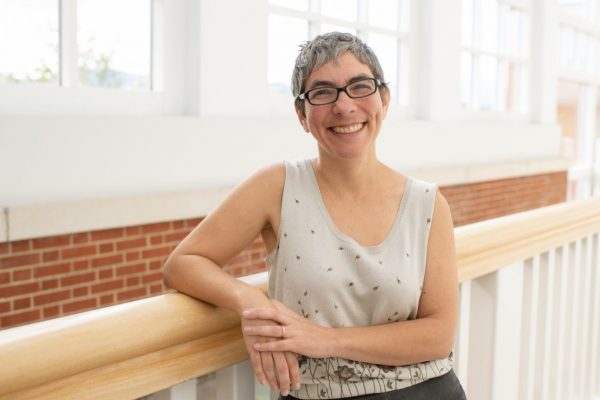Ayoub and Friend Awarded NSF Grant for Research in Spider Silk
Two Washington and Lee University professors have received a National Science Foundation Grant of $302,674 that supports their research of the evolutionary diversity of spider aqueous glues.
Nadia Ayoub, associate professor of biology and principal investigator of the project, along with her W&L colleague Kyle Friend, assistant professor of chemistry and biochemistry, worked together to secure the funding.
The grant will help fund a multidisciplinary team from three institutions, including W&L, that will investigate how variation in adhesive-protein components of spider silk relate to differences in the glue’s material properties. The wet-adhesive silks of the 18 target species of spiders that the group is studying have significant differences in adhesiveness, material efficiency and response to humidity. Identifying the molecular correlates of these properties will advance basic understanding of structure-function evolution, and contribute to the development of high-performance biomimetic glues.
“I am most excited about having funding to support close collaborations with a colleague in another department, Kyle Friend, as well as colleagues at other institutions. This includes Brent Opell from Virginia Tech, a pioneer in silk biomechanics, along with Cheryl Hayashi at the American Museum of Natural History, who is the leader in spider silk molecular evolution,” said Ayoub.
“I am also really excited to work on this project with Nadia Ayoub and other experts in spider physiology and evolution,” said Friend. “It has been wonderful working with students to better understand how spider glues work as adhesives and how their proteins contribute to their function.”
The study of the web-building spiders offers many opportunities for science educators to integrate biology, chemistry, physics and mathematics as they engage their students in the natural world. Ayoub and her team will mentor both undergraduates and graduates, as well as incorporate the research into their undergraduate courses.
“Having the external funding also means that I can support additional undergraduates doing research in my lab than I would be able to do with internal funding,” said Ayoub. “I can involve even more students through research-based courses. Having funding also means that I can advance my scholarship in the area of spider silk genetics at a deeper, more complete and more complex manner than I would otherwise be able to.”
Team members will also offer science-enrichment activities at rural Virginia public elementary schools, run workshops for middle and high school science teachers and mentor New York City high school students to complete original research projects.
 Nadia Ayoub
Nadia Ayoub
You must be logged in to post a comment.